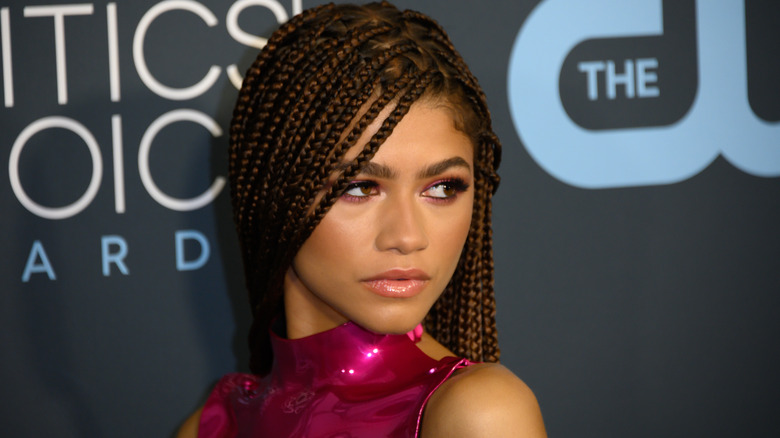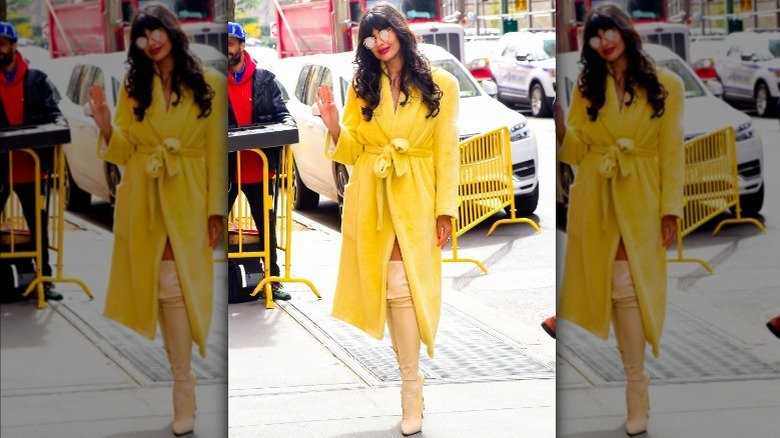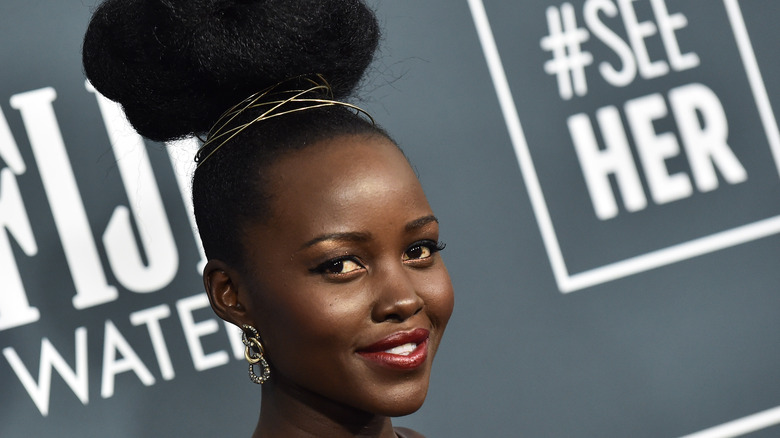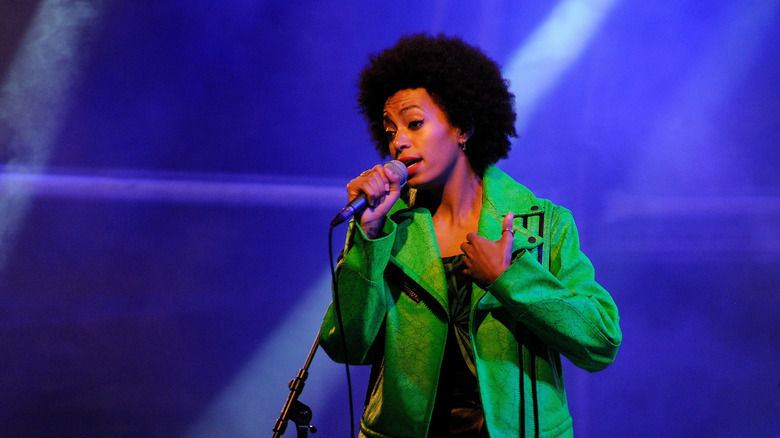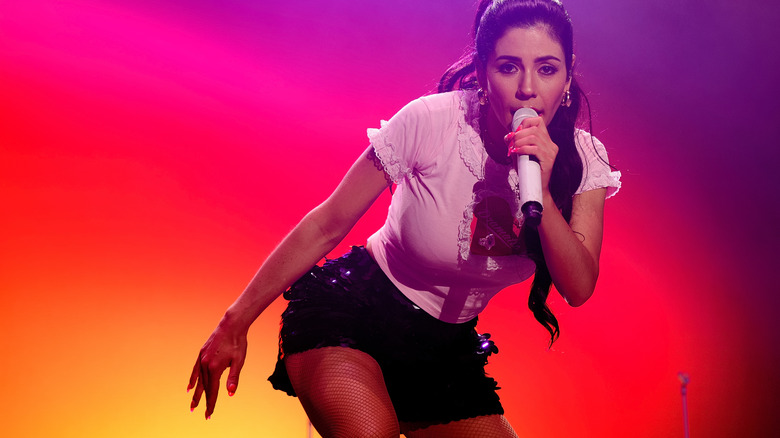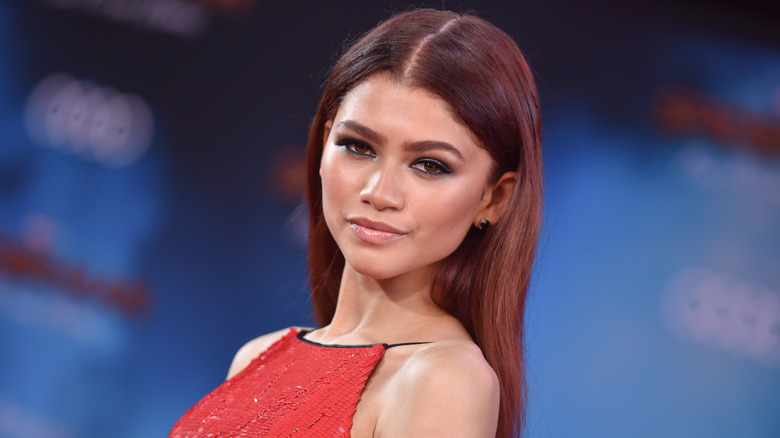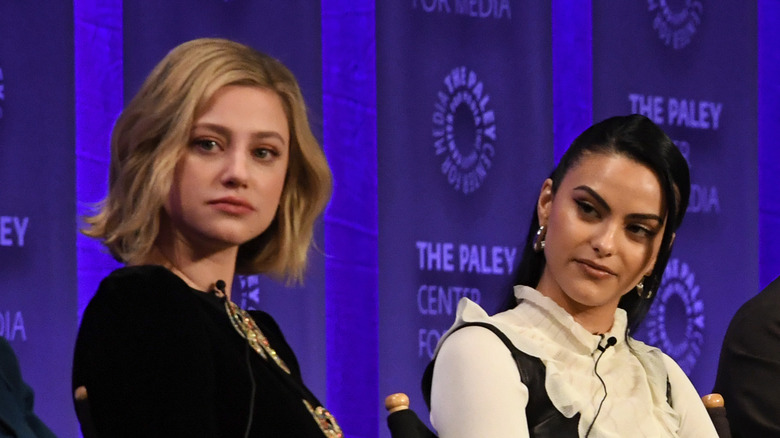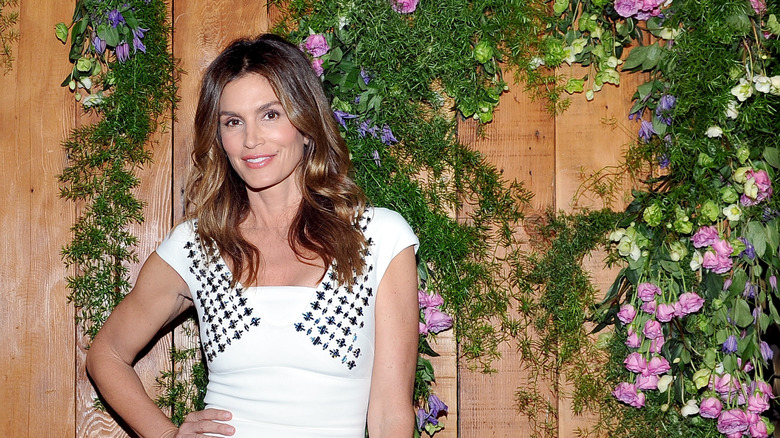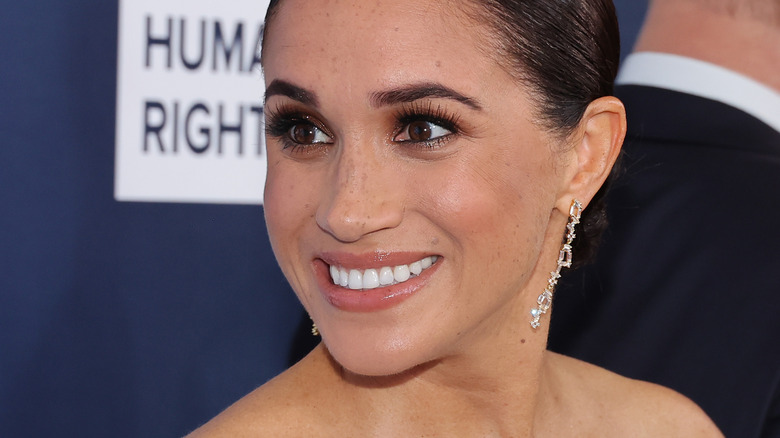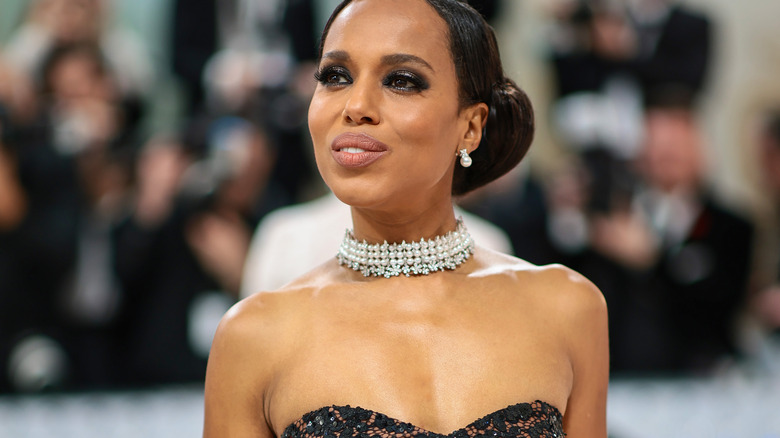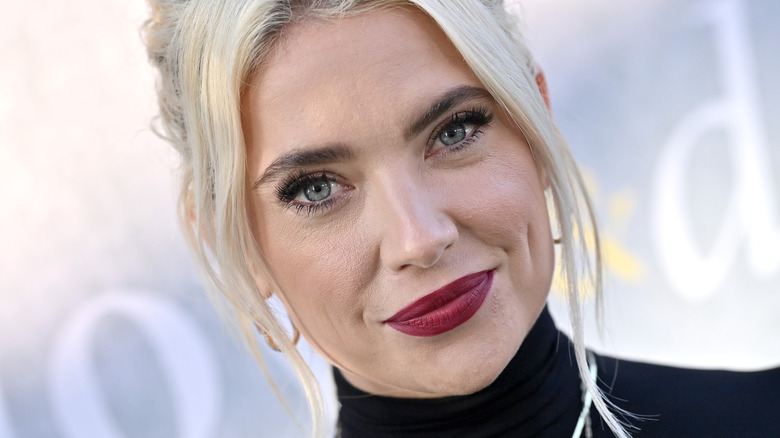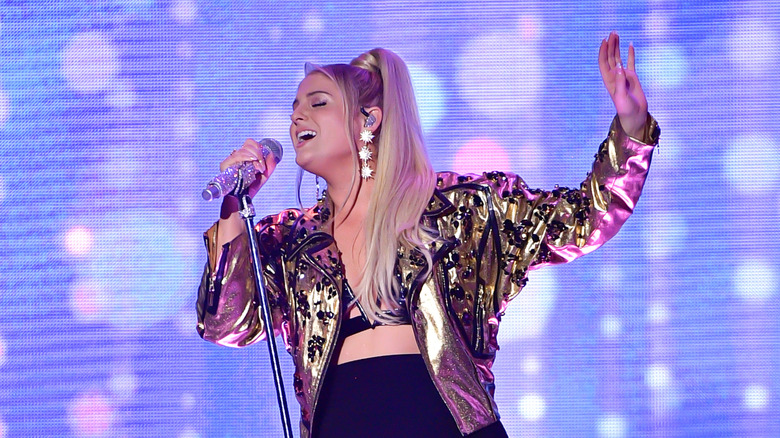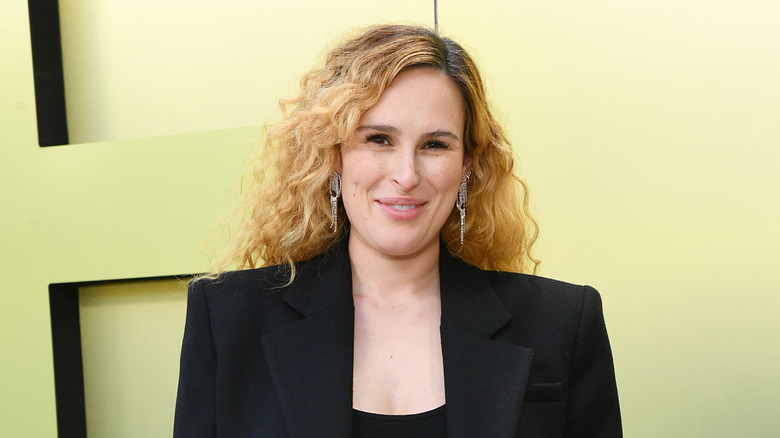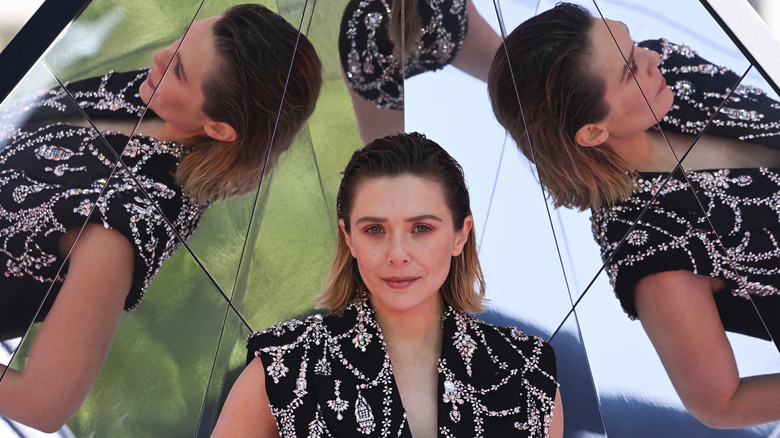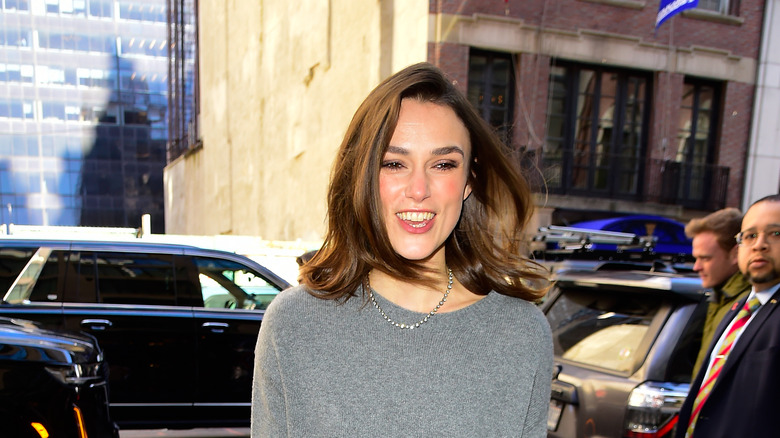15 Celebs Who Called Out Unrealistic Photoshopping
Some alarming information was recently published in The New York Times, from U.S. surgeon general Dr. Vivek Murthy, that "social media can also have a profound risk of harm to the mental health and well-being of children and adolescents."
From fun artificial intelligence filters that can transform you into a character from a fantasy world, to light editing to remove a blemish (or two) from a selfie, there seems to be a notable uptick in people using editing tools for their photos. Facetune, one of the most popular selfie-editing apps, had approximately 200 million users as of March of 2023.
However, according to the New York Times, "as social media use has risen, so have self-reports and clinical diagnoses among adolescents of anxiety and depression." Luckily, some of the most influential figures in our society are fighting back against this culture of self-editing. While some people are looking to alter or improve their digital images, perhaps at a detriment to their mental health, these celebrities want to be portrayed by the media as their true, #nofilter selves, to combat the unrealistic beauty standards that the media and photo editing have set.
Jameela Jamil had a bone to pick with airbrushing
In 2019, actress, feminist, and activist Jameela Jamil took to social media to express how "mentally unwell" she became "trying to live up to this [edited] image in person." She shared a heavily-photoshopped image of herself on Instagram, pointing out all of the edited parts in the photograph, like extremely thin arms, lightening of her skin color, and even airbrushing and smoothing of her knees and ankles.
Jamil, who has openly spoken about her own struggles with navigating and overcoming her eating disorder and body dysmorphia (via Cosmopolitan), also created an online community and podcast called "I Weigh" to advocate for "radical inclusivity" of all people and bodies in the media and online. "I Weigh" shares educational content about how to navigate mental health around body image, including how to spot the sometimes confusing messaging around diet culture and how to comment (or not) on people's bodies — important conversations that are part of the broader issue around extreme photoshopping in media.
Lupita Nyong'o spoke out about unrealistic beauty standards for women of color
The Perception Institute, a research group that works to reduce bias and discrimination based on race, gender, and other identities, published the "Good Hair" Study in 2016. The study found that, overall, many people "show implicit bias against Black women's hair." A mainstream example of this bias was when the (rightfully) disappointed Lupita Nyong'o shared unedited and edited versions of her 2017 Grazia Magazine cover on Twitter.
Nyong'o wanted to highlight how the magazine appeared to have smoothed out her hair and even edited some of it out of the photo completely. The Academy Award-winning actress, who has portrayed powerful female characters on-screen, criticized the magazine for altering her image "to fit a more Eurocentric notion of what beautiful hair looks like." She used the hashtag "#dtmh," ("don't touch my hair"), and she wasn't the only celebrity to use this phrase.
Art imitates life for Solange Knowles
Solange Knowles used her own song title — "dtmh (don't touch my hair)" — to send a message online, according to the BBC. This message, posted on Instagram, was for the Evening Standard Magazine and their editorial team, who edited and removed parts of her hair in an image used for their front cover. In the original photo, Knowles' intricate and beautiful hairstyle — "a collaboration between hairstylist Vernon François and sculptor Joanne Petit-Frere," according to Vogue — was prominently displayed. However, much of the hairstyle was missing on the cover of Evening Standard Magazine.
When Knowles called the publication out on what they'd done, it sparked disappointment and outrage online, especially when Knowles pulled a quote from the interview she did for the magazine. In it she states that hair braiding is an "act of beauty, an act of convenience and an act of tradition – its own art form". Soon after, the magazine published an apology to Knowles saying, "The decision to amend the photograph was taken for layout purposes but plainly we made the wrong call and we have offered our unreserved apologies to Solange."
MARINA wants designers to 'DO BETTER'
In 2019, singer MARINA attended an awards show wearing an unnamed designer's clothes "to support her." However, she shared in a tweet that the designer later shared a photo of her on Instagram that "had photoshopped my legs and thighs to look like literal sticks." Though she did not call the designer out by name, MARINA shared the experience publicly to spread the message that it's "super irresponsible & unkind to distort a woman's figure for what is essentially someone else's vanity."
While many users were focused on figuring out who this designer was, one user commented that everyone had missed the point of MARINA's post — that it's the "internalized misogyny" that matters. The way users engage with this type of content "'can normalize' eating disorders and other self-destructive behavior," according to the New York Times.
This is a particularly alarming thought, as the average age of users of social media like Instagram and TikTok is 18-24. These people fall into the demographic of those who are most susceptible to eating disorders, according to Johns Hopkins.
Zendaya spoke out and had edited images taken down
With a staggering 30 million Americans currently struggling with eating disorders (via the National Eating Disorders Association or NEDA), representation of all bodies in the media feels so important. Seeing all kinds of bodies in the mainstream media can help people understand that their bodies are also accepted and regarded as beautiful. So, when Modeliste magazine published slimmed-down photos of Zendaya, she was quick to call them out on the doctored photos.
The then 19-year-old actress and singer shared a side-by-side of edited and unedited images from the photoshoot on Instagram, and expressed her disappointment at how she was photoshopped, saying, "Anyone who knows who I am knows I stand for honest and pure self love. So I took it upon myself to release the real pic (right side) and I love it."
According to NEDA, teens aged 15 to 24 with anorexia have "10 times the risk of dying compared to their same-aged peers." So celebrities in that age group having open conversations about the reality of altered images in media is so important and potentially impactful to the teens who idolize them.
Lili Reinhart stood up for herself and her co-star
After appearing on Cosmopolitan Philippines with notably smaller waistlines, "Riverdale" actress Lili Reinhart shared unedited photos of herself and co-star Camila Mendes from the photo shoot, to highlight the disturbing difference between the images. She also shared comments on her Instagram Story regarding the editing of their bodies, noting that she and Mendes "worked incredibly hard to feel confident in the bodies we have," and that "It's an everyday battle, sometimes. And to see our bodies become so distorted in an editing process is a perfect example of the obstacles we have yet to overcome."
In support of her co-star and friend, Mendes later sent a message to the publication via Instagram as well, on behalf of herself and co-star Reinhart, saying, "We prefer to see our bodies the way they actually are." With a 2020 study by Case24, a cell phone case brand, finding that 81% of people will not post unedited photos of themselves, influential people like celebrities need to spread the message and lead the charge in making natural, unedited beauty the standard to aspire to.
Cindy Crawford doesn't think she looks like herself
Excessive photoshopping has to be pretty bad if even one of the most iconic supermodels feels that her images are too retouched, right? Cindy Crawford wrote in her book "Becoming" (via CBC Radio) that many of the photos of her in fashion magazines and advertisements are enhanced images and simply "part of the illusion of being Cindy Crawford."
While it's refreshing to see someone like Crawford, who is renowned for her beauty, acknowledge that there is a difference between how she perceives her beauty in real life versus in photographs, it is also a little bit sad to think about. It's upsetting that someone who is celebrated for her beauty can't even celebrate it herself, because of how her image has been repeatedly distorted and enhanced in photos for public consumption. This is just one example of how even women who are idolized and sought after for their looks can be made to feel insecure when their likeness is constantly edited to look "better" or "perfect."
Meghan, Duchess of Sussex, wants to show off her freckles
Appearing in a 2017 cover photo for ELLE France, the Duchess of Sussex looked stunning and poised, though missing one of her notable features: her freckles. One could argue that there are far worse examples of unrealistic photoshopping, but this particular instance could be considered especially egregious since Meghan Markle has been vocal in the past about her feelings about edited images.
In an interview with Allure just a few months prior to the publication of the ELLE France cover, the Duchess of Sussex said it was a pet peeve of hers when her freckles were edited out of photos. This is just another example of how influential women in pop culture can be made to look as though they're promoting unrealistic beauty standards, even when they're actively fighting against them and being ignored by the publications that profit from their likeness.
Kerry Washington makes an important point about de-prioritizing looks
Actress Kerry Washington had a complicated task in promoting a cover story she appeared in for a prominent magazine. While Washington wanted to highlight an AD WEEK article she was proud of, she also felt she needed to be critical of some extreme photo editing of her image which appeared on the cover of the magazine. Washington noted in an Instagram post that while she liked "some of the inside images [in the magazine] a great deal," she was "taken aback by the cover." In Washington's words, it is an unfortunate feeling "to look at a picture of myself that is so different from what I look like when I look in the mirror."
The editorial director of the magazine later made a statement in response, saying, "To clarify, we made minimal adjustments, solely for the cover's design needs. We meant no disrespect, quite the opposite. We are glad she is enthusiastic about the piece and appreciate her honest comments." To call the editing minimal seems a bit contrary, as the actress herself said she felt that the photo didn't look like her.
Ashley Benson didn't recognize herself
Actress Ashley Benson gained fame from the hit TV show "Pretty Little Liars." However, she told Stylecaster that "nobody looked like themselves" in the early promotional photos for the show, calling it "completely crazy." Once her time on the show came to an end, she decided to take a break from heavily consuming social media, because "when you're always on social media, you're living in this fake life. I'd rather just not look and enjoy my time."
With a show like "Pretty Little Liars" targeted at a younger audience, it is concerning that the promotional images of the cast were so heavily edited. The show's seven-season run, with an audience of millions (via Hollywood Reporter), makes it even more alarming, especially considering that most watchers were young teens, likely aspiring to look like the photoshopped versions of the actresses they admired on screen.
Meghan Trainor demanded her music video be re-released
As the writer of the song lyrics, "I see the magazines workin' that Photoshop. We know that s*** ain't real, come on now, make it stop," singer Meghan Trainor's art really imitated her life when the music video for her 2016 song, "Me Too" was released with significant retouching made to her body — allegedly without her consent. She then took to Snapchat to share with her fans that she, "took down the YouTube video because they Photoshopped the crap out of me, and I'm so sick of it."
According to Trainor, seeing the edited video of her body in her music video made her cry, so she could not ignore it and simply return to work. Fortunately, a new, unedited version of the video was released later that day, with Trainor's consent. A song about self-confidence and loving yourself should feature the artist as they feel most confident — in this case, without the use of heavy editing.
Rumer Willis thinks extreme photoshopping is a form of bullying
In 2016, actress Rumer Willis, eldest daughter of Bruce Willis and Demi Moore, took to Instagram to call out one of the biggest fashion magazines, Vanity Fair, for the way they edited her image (via Today). She was so unhappy with the photo that she asked friends, family, and fans alike not to share the image, or remove the image if they'd shared it already, because "The photographer Photoshopped my face to make my jaw smaller and I find it really offensive for anyone to try and change the way you look so drastically." She also went on to say that "Whether or not [the photographers] realize it, [photoshopping] is a form of bullying, which I won't stand for."
The way Willis stood up for what she believes in, and her thoughtful critique of the way her portrayal in a world-renowned publication made her feel, should be admired.
Elizabeth Olsen didn't recognize herself
In a since-deleted Instagram post, actress Elizabeth Olsen asked a simple question: "Does that look like me?" Olsen was referring to the cover of Empire magazine, featuring her and fellow cast members promoting their movie "Avengers: Infinity War." Though some of her cast members' faces and bodies are purposefully altered with special effects makeup for the movie, Olsen's character simply looks like the actress, so it was surprising to see her looking so different in a photo compared to on-screen. Fans were quick to reply, seemingly agreeing with Olsen's sentiment.
While fictional characters from fantasy lands can look any way their creators imagine them, if Olsen's character was meant to look the way she did on the magazine cover, that should have been an aesthetic choice for the movie as well, but it simply wasn't.
Kiera Knightly doesn't need body parts enhanced
Actress Kiera Knightly posed topless for the cover of Interview Magazine to make a point that "it really doesn't matter what shape you are," she said in an interview with The Times. Her stipulation for doing the daring shoot was that the editors didn't "make them [her breasts] any bigger or retouch," as they had been edited in photos — to her disappointment — in the past. In 2004, Knightly called out photo editors for enhancing her chest in promotional images for her film, "King Arthur."
In fact, the term 'enhancing' may be the incorrect term to use, as Knightly described the image unfavorably in an interview with The Daily Mail, saying, "they gave me these really strange droopy t*ts." She also quipped, "If you're going to make me fantasy breasts, at least make perky breasts.” A good sense of humor may keep her criticisms light-hearted, but Knightley's point should not be lost. Altering women's bodies to fit a generalized standard of beauty can be harmful and shouldn't be such a common practice.
